Octopus has the ability to build a new civilization.
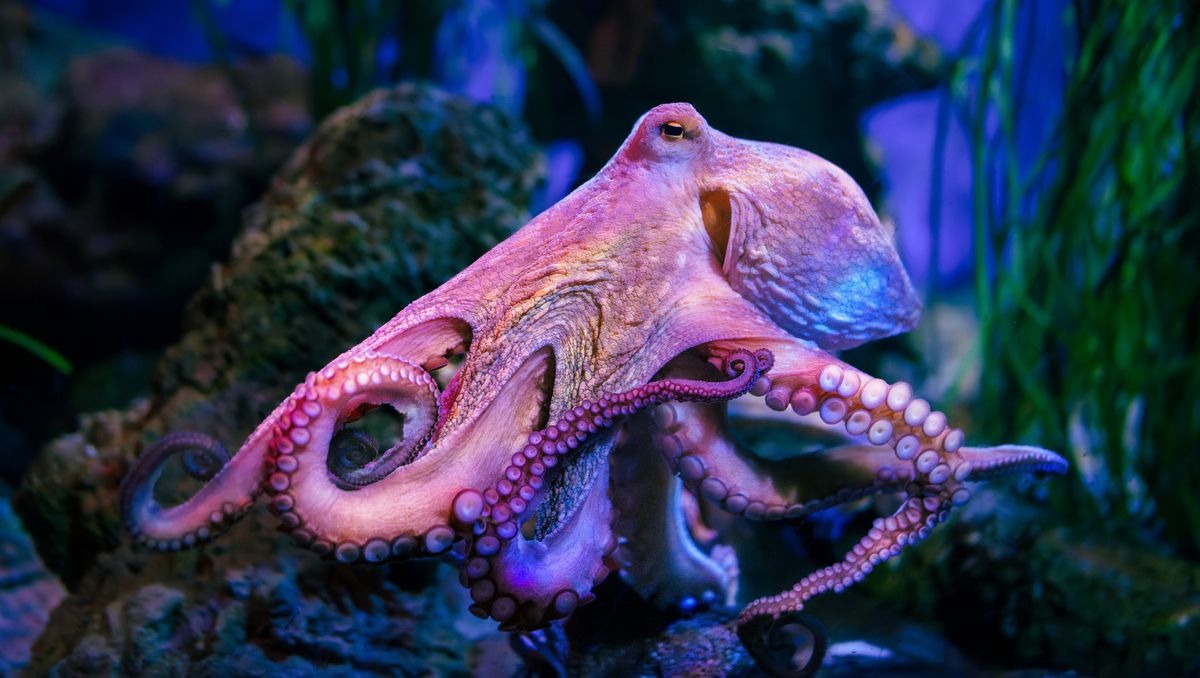
Extinction is a natural occurrence on Earth and has been happening since the beginning of life. Looking at fossils from the earliest times, scientists have recorded a total of 5 major mass extinctions in Earth's history, including the disappearance of the dinosaurs that took place 66 million years ago.
According to a 2023 report, Earth is entering a new extinction cycle. Human impact on biodiversity, through man-made climate change and habitat loss, has severely damaged the natural world . Another 2022 report in the journal Nature found that 50% of species will become extinct by 2080 if deforestation and waste continue.
These reports point to a gradual extinction event. However, humanity is still facing sudden extinction events. A supervolcano eruption, a giant asteroid impact, or even a nuclear war could all spell the end of our civilization.
Assuming a future collapse occurs, researchers ask: what species will rise from the ashes of Earth?
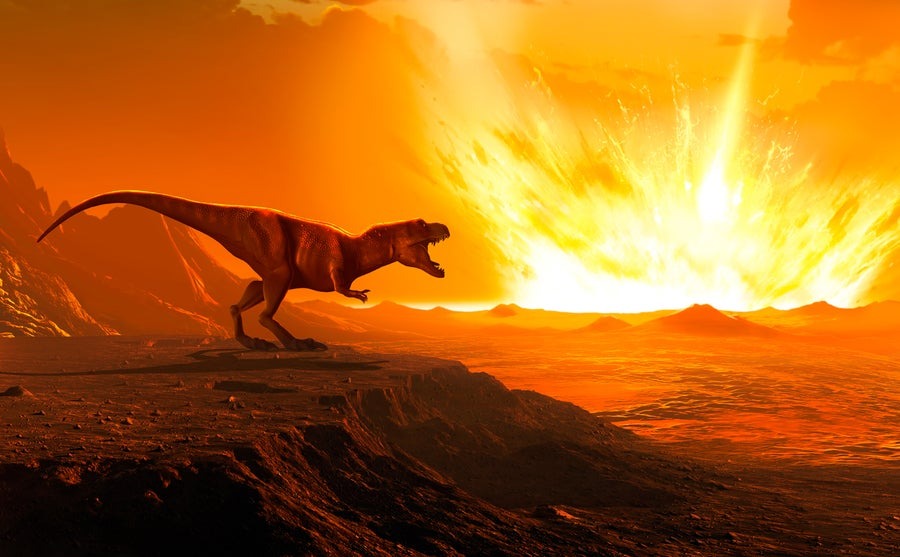
66 million years ago, dinosaurs faced the worst day of their lives - Photo: Mark Garlick/Science Photo Library/Getty Images.
According to Professor Tim Coulson, a biologist and expert in biology and evolution at Oxford University, the descendants that will take over Earth are now on the menu of most seafood restaurants.
“ There are many species of octopus, not just one human-like species … and they live in a wide variety of ecosystems, from the deep blue sea to the ocean shore, ” said Professor Coulson. “ While some populations and some species will die out, I think there is still an opportunity for others to survive, flourish, and diversify over time to thrive in a variety of environments .”
We can also make it easier for octopuses to inherit the Earth, he says, by stopping hunting and consuming them.
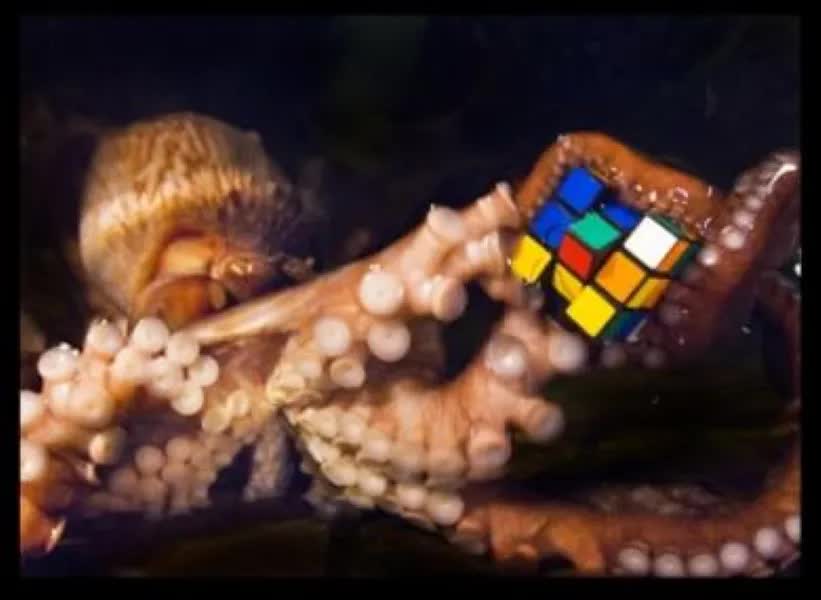
An octopus trying to solve a Rubik's cube - Photo: Internet.
Coulson himself admits that this is just one of many possible scenarios for a post-apocalyptic Earth, and that the octopus may not be the only one. However, if it is, it would not be the first time a sea creature has taken advantage of the opportunity to thrive on land.
In fact, our mammalian ancestors—or our own ancestors—started out that way, says Andrew Whiten, a professor of zoology and psychology at the University of St. Andrews.
Based on Mr. Coulson’s assessment, octopuses now have enough advantages to evolve to the next level of intelligence. Some species already know how to use tools, for example, using coconut shells to create protective armor or “mobile homes.” In the laboratory, octopuses know how to use tools to solve puzzles. There have even been cases of octopuses in aquariums escaping their habitats to visit their mates in other tanks.
But according to Princeton University biology professor Andy Dobson, we cannot compare human intelligence with that of an octopus. According to him, an octopus’s intelligence is similar to that of a computer.
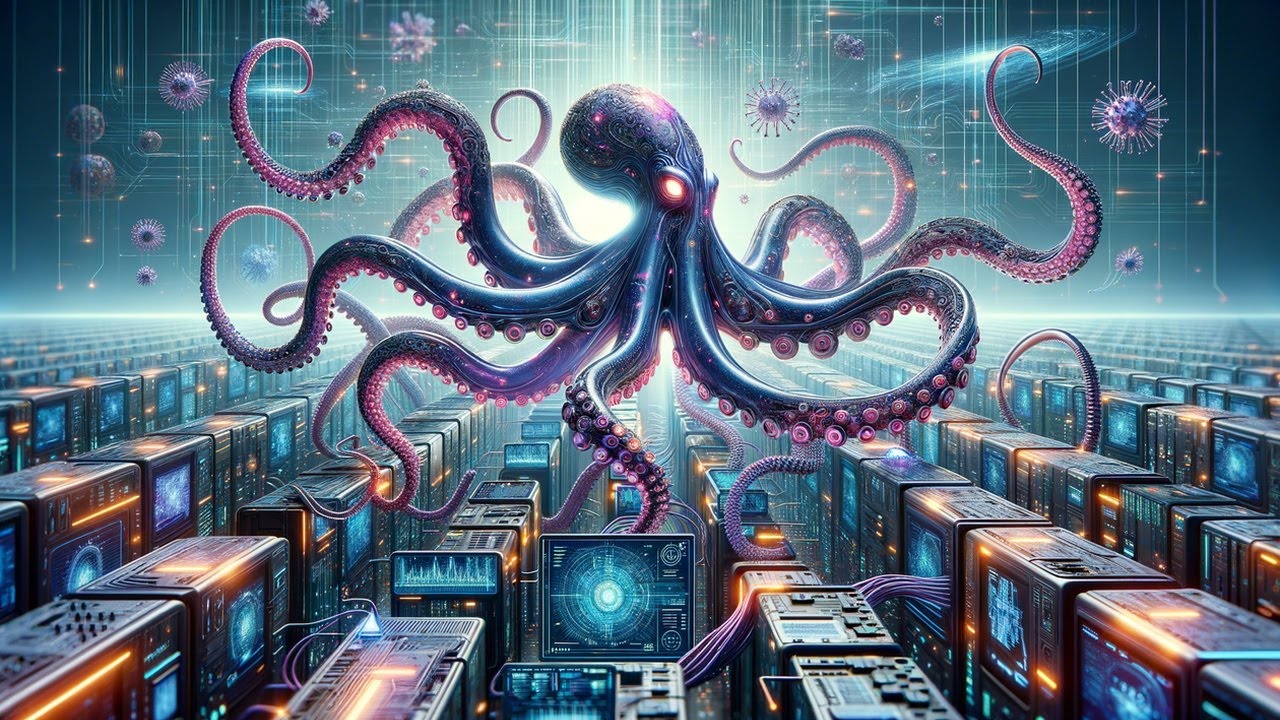
Illustration photo.
“ The octopus appears to have a highly evolved nervous system. The dense network of neurons connecting its eight limbs and large eyes is less a brain than a data processing center, ” Dobson said. “ Their intelligence comes from having so many limbs and large eyes to sense their environment .”
While octopuses aren't the only species to exhibit advanced intelligence, Coulson argues that dexterity is an important trait that sets them apart.
“They are incredibly dexterous, able to use their eight limbs to manipulate all sorts of objects. And while crows and some birds can bend wire with their beaks, or drop rocks into water to get food, they are not as dexterous as an octopus,” he said.
Unlike humans, octopuses have no backbones, and are likely to develop civilizations only in the ocean rather than on land. However, to build an “octopus city,” Coulson believes they first need to tap into an easily accessible energy source.
For coastal octopuses, he suggests this could be done by harnessing tidal energy. Deep-sea octopuses could also harness energy from hydrothermal vents, although it would be a bit more difficult.
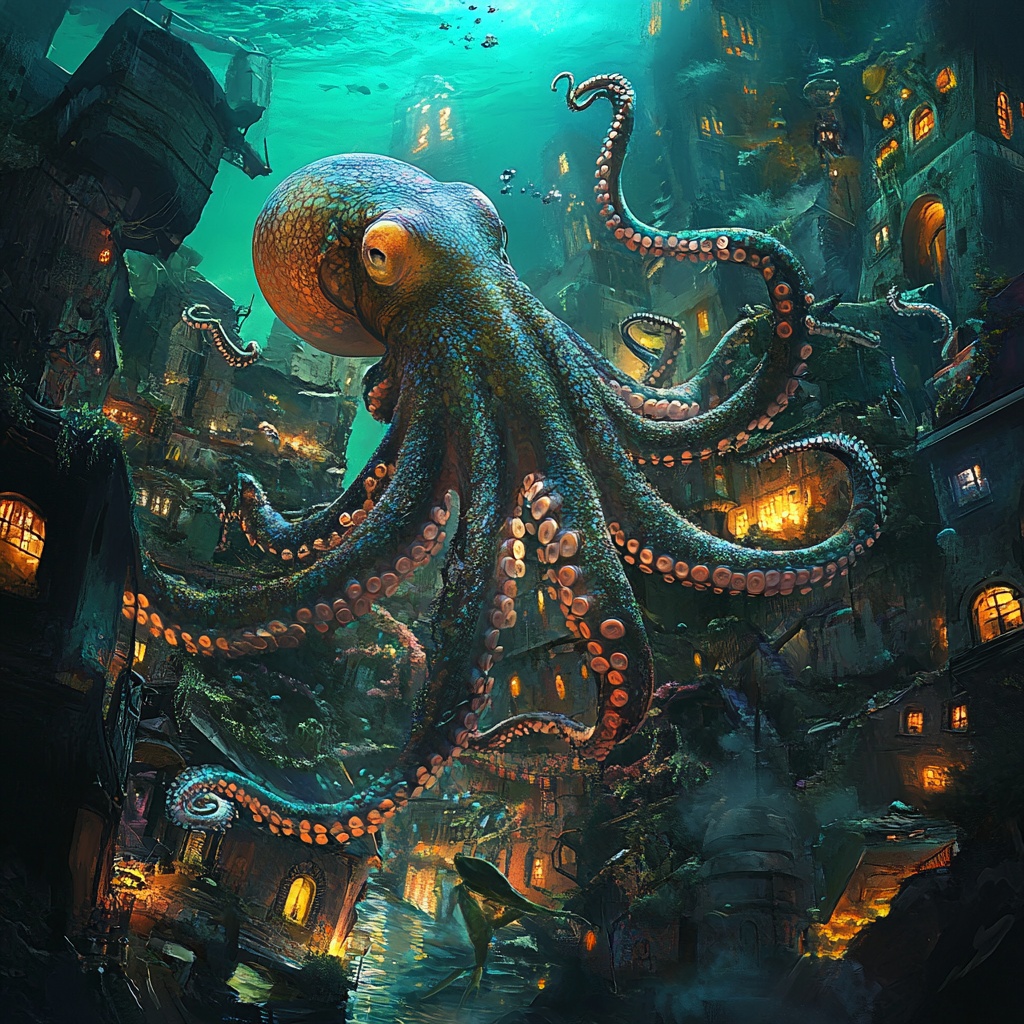
Illustration photo.
With their growing intelligence and access to energy, octopuses will face the biggest obstacle in their evolution: sociality. Octopuses are notoriously solitary and have been known to eat each other.
Professor Peter Godfrey-Smith, PhD, majoring in the history and philosophy of science at the University of Sydney, argues that this behavior needs to change significantly if octopuses are to gather in large numbers and build a social organization.
“Octopuses are not designed to build a society like humans because of their social habits, in fact they are unlikely to develop a culture,” Godfrey-Smith said. “When I say ‘culture’, I mean the ability to learn from other members of the society… For octopuses, the first step they need to take is to become more socially integrated and raise their young differently.”
Godfrey-Smith explains that octopuses inherit virtually no culture from their parents – at least in human terms – because the parental role in nurturing is virtually non-existent. To develop a more cohesive society, octopuses may need to build more intergenerational bonds, he says.
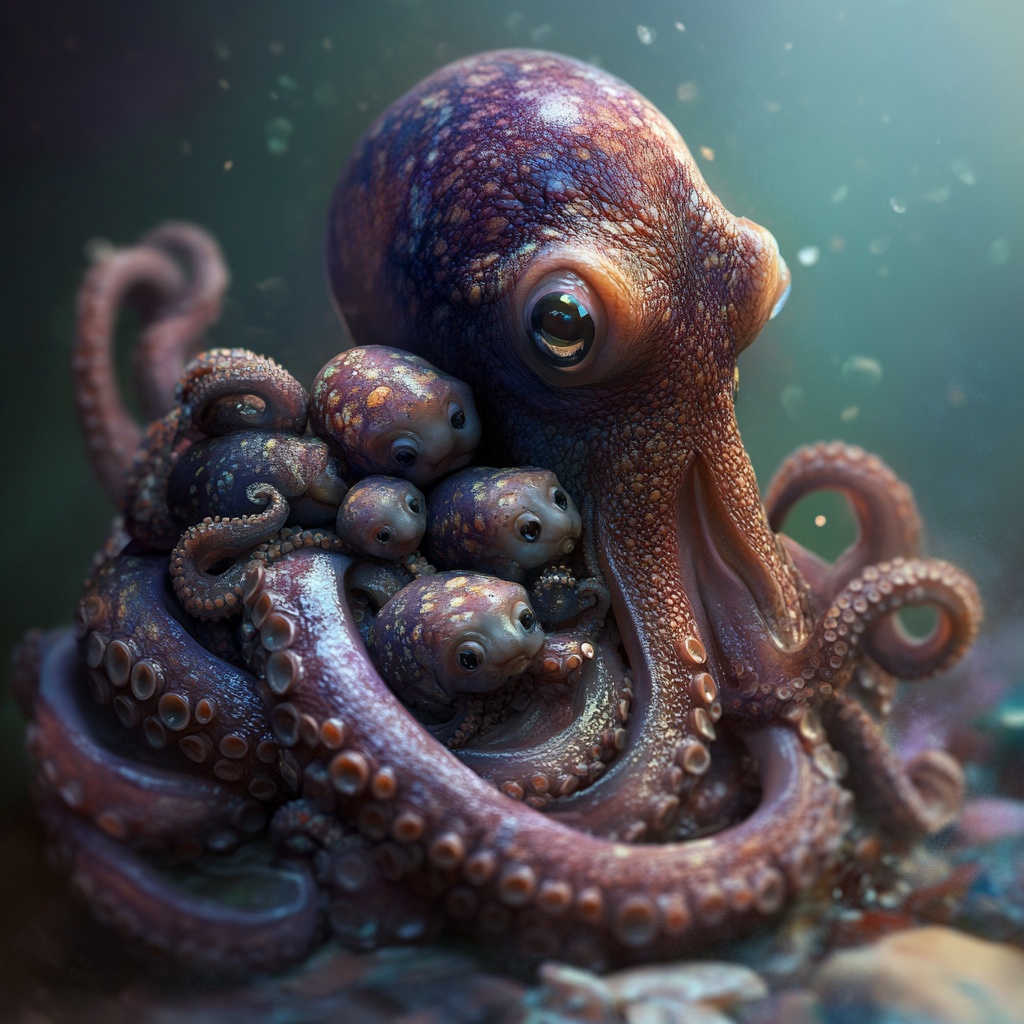
Since such social shifts have not occurred in the 50 to 100 million years that octopuses have existed, Dobson says the change is unlikely. But in recent years, scientists have observed over the past decade that some octopus species may be more sociable than others, with some octopuses living in groups of ten or more individuals.
Unfortunately, human impact may be limiting the octopus’s evolutionary opportunities. He says pollution, ocean warming, overfishing and microplastics may have harmed the octopus, though we don’t yet fully understand the extent of the impact.
If not the octopus, Dobson thinks the nematode could be the surprise winner of Earth's sixth mass extinction. As for Godfrey-Smith, he's betting on the cockatoo.
According to Popular Mechanics
Source: https://giadinh.suckhoedoisong.vn/nha-khoa-hoc-cho-rang-hau-due-tiep-quan-trai-dat-tu-con-nguoi-dang-nam-trong-thuc-don-nha-hang-hai-san-172241220072146959.htm



![[Photo] Prime Minister Pham Minh Chinh chairs the 14th meeting of the Steering Committee on IUU](https://vphoto.vietnam.vn/thumb/1200x675/vietnam/resource/IMAGE/2025/9/23/a5244e94b6dd49b3b52bbb92201c6986)
![[Photo] The 1st Congress of Party Delegates of Central Party Agencies, term 2025-2030, held a preparatory session.](https://vphoto.vietnam.vn/thumb/1200x675/vietnam/resource/IMAGE/2025/9/23/e3a8d2fea79943178d836016d81b4981)
![[Photo] Editor-in-Chief of Nhan Dan Newspaper Le Quoc Minh received the working delegation of Pasaxon Newspaper](https://vphoto.vietnam.vn/thumb/1200x675/vietnam/resource/IMAGE/2025/9/23/da79369d8d2849318c3fe8e792f4ce16)

![[Photo] General Secretary To Lam meets voters in Hanoi city](https://vphoto.vietnam.vn/thumb/1200x675/vietnam/resource/IMAGE/2025/9/23/d3d496df306d42528b1efa01c19b9c1f)






















































































Comment (0)